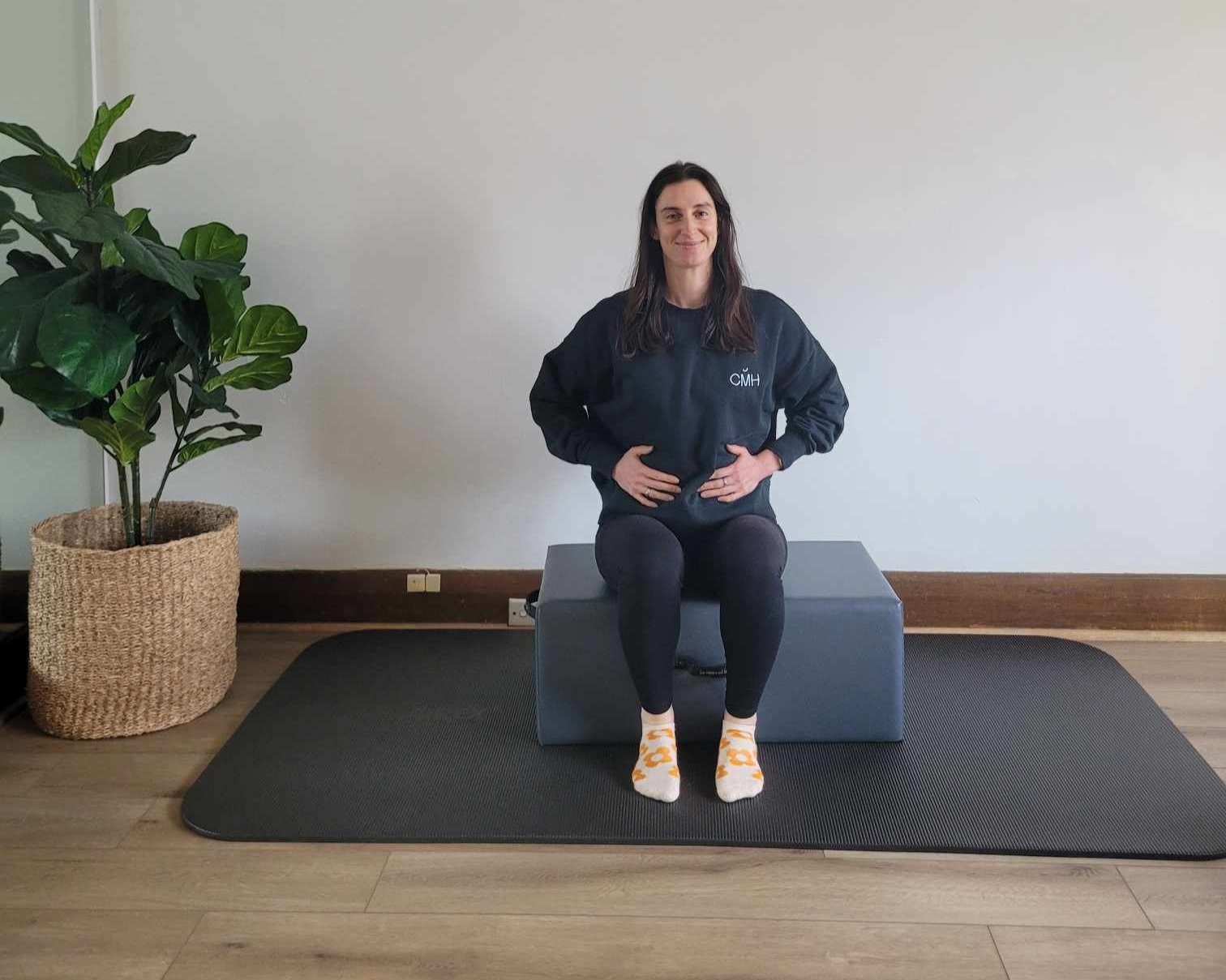Prenatal Pelvic Floor Stretches
Your pelvic floor plays a vital role during pregnancy and works hard to support your internal and external structures as your body grows and changes. While it’s important to have a strong and controlled pelvic floor during pregnancy, it’s also important to stretch and know how to relax your pelvic floor during the prenatal period.
These are our top four prenatal pelvic floor stretches that you can do at home to make sure you are getting that relaxation and all important stretch through these muscles to help prepare your body for birth and beyond!
Cat Cow Stretch
Starting in a four point kneel position, with your shoulders over your wrists and your hips over your knees
Flex through your spine, arching your back towards the ceiling pushing your shoulder blades away from each other and looking down towards the floor with your chin tucked
Then slowly reverse your spine into extension, pushing your chest forward and looking up towards the ceiling
Slowly move through flexion and extension, focusing on your breathing and relaxing through the pelvic floor muscles while you’re in extension
Repeat at least 6 times or as many as you feel your body needs
Puppy Pose
Starting in the four point kneel position again, walk your arms forward and increase the distance between your knees to allow for your bump
Sitting back into your hips, place your forearms on the mat and start to bend forward, keeping your bum up high to the ceiling
Eventually place your forehead on the mat and feel the stretch through your upper back while also focusing on relaxing and breathing into your pelvic floor muscles
Rest in this position for 30 seconds or longer if desired
Seated Glute Stretch
Sit down on a chair, the couch, your bed or anywhere that’s comfortable but aim to have your hips higher than your knees
Cross your right leg across your left leg so that your right ankle is sitting on your left thigh
You should feel the stretch through the right glute, to increase the stretch you can lean forward or push the right knee away from you
Hold for 30 seconds, focusing on your breathing
Swap legs and repeat, you can always do more if you’d like
Seated Diaphragmatic Breathing
Sitting in the same position or you can sit cross legged if you prefer
Place your hands on your rib cage, feeling your ribs expand as you take a deep breathe through your nose then feel your ribs collapse back down as you exhale through your mouth
When you breathe in focus on filling up your belly with air and when you breathe out, focus on relaxing all your muscles
Feeling your ribs encourages us to take deep breaths all the way into our lower rib cage and fill our diaphragm
Take 10 deep breaths or more if needed, you can also close your eyes to help relax
At Collective Motion, we offer Pregnancy Pilates to give you the opportunity to exercise in a controlled and pregnancy safe environment. We understand the importance of focusing on both strength work as well as stretching and mobility and we ensure all our classes focus on this too. To find out more or to book into a class, press the buttons below!
We hope you found this helpful! If you have any questions or need any advice on any of these exercises, please don't hesitate to reach out and chat to us.
Remember that you shouldn’t feel pain during any of these exercises. If they are painful for you, consider avoiding that exercise or decreasing the intensity. We are always here to help if needed.
If you’re after some more advice or are in need of some hands on help, we’d love to see you at Collective Motion! Collective Motion offers Osteopathy, Myotherapy, Dietetics and Pilates and is conveniently located to service our Bentleigh community as well as its surrounding suburbs including Bentleigh East, McKinnon, Ormond, Glenhuntly, Murrumbeena, Carnegie, Oakleigh, Gardenvale, Brighton East and Hampton East. Click below to book an appointment and let us help you get moving again.





